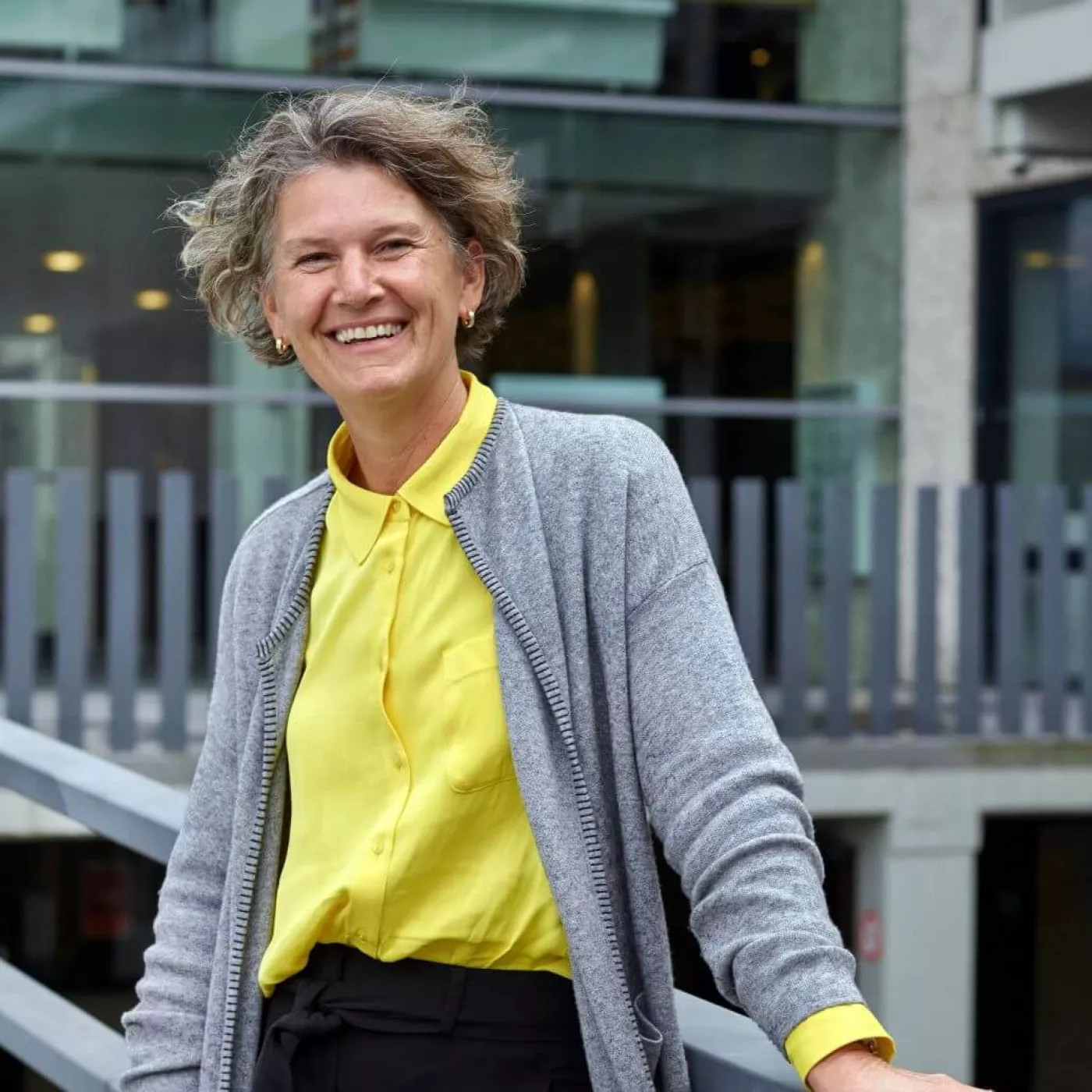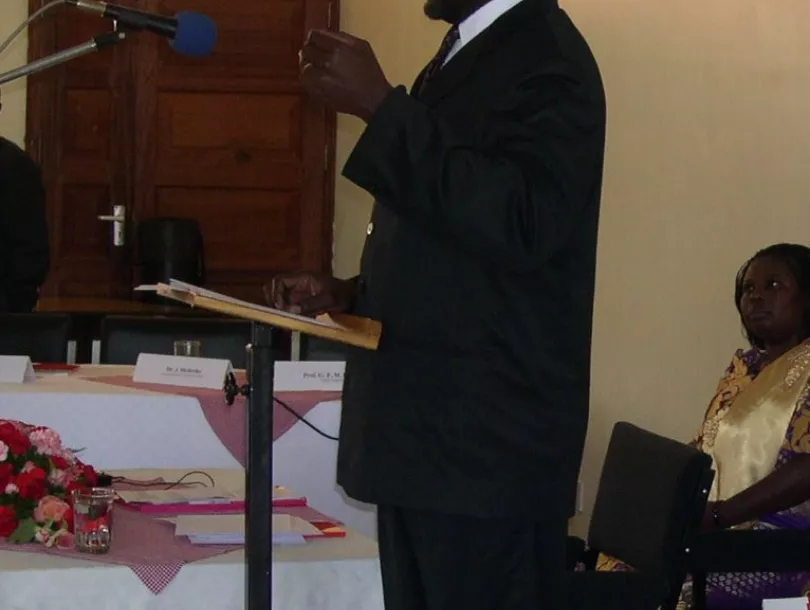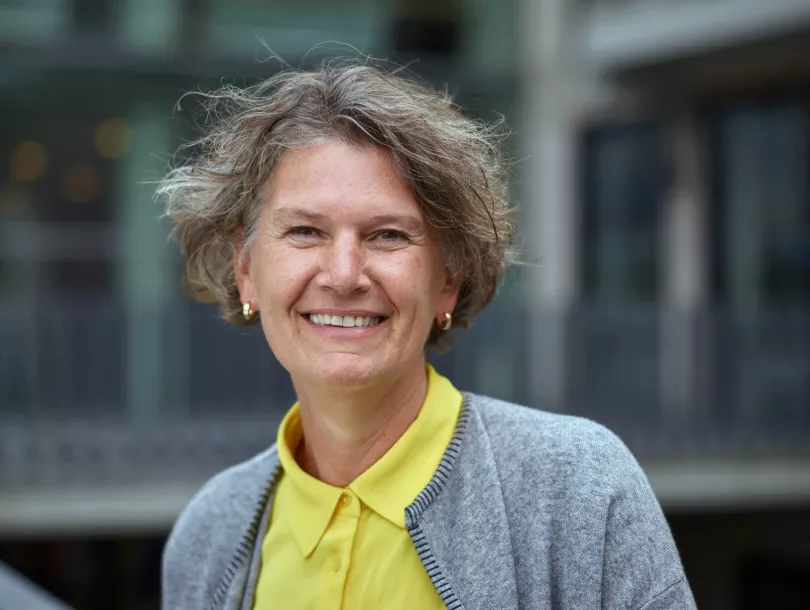Six essential learnings for education & training in crisis situations

Mental health and psychosocial support (MHPSS) is an underrated and even neglected part of humanitarian aid in crisis and emergency situations. That is why the Dutch government is hosting a conference on the subject on 7 and 8 October in Amsterdam. Nevertheless, realising sustainable change is impossible without training and education ‘on the ground’, according to Geraldine Beaujean of Maastricht University. With over 20 years of experience in health training & education in developing countries, she shares with us six ‘must-knows’ for institutions and individuals looking to contribute.
Geraldine vividly remembers the culture shock she experienced when visiting Sudan for the first time, back in 1993. As a recently-graduated tropical doctor her goal was to introduce problem-based learning (PBL) at a local medical faculty. But before she could get into the substance, Geraldine had some acclimatising to do. She recalls the very first letter she sent home. “Everything – literally everything – is different here”, she wrote her parents, “except Coca Cola.”
Geraldine found her footing however, and her work in Sudan turned out to be just the start for almost three decades of revolutionary health education projects in countries like Kenya, Mozambique, Yemen, South Sudan and Ethiopia – often funded by Nuffic. With so much experience in the field of training & education in developing countries and crisis situations, Geraldine – like few other people – knows what works and what doesn’t.
“Everything – literally everything – is different here”, Geraldine wrote her parents, “except Coca Cola.”
1. Focus on the substance
When educating people in countries far from home, trainers encounter serious cultural barriers. “I have made my share of painful mistakes in my years abroad, that much I can ensure you”, Geraldine says, smiling. “For example, I have called a professor by his first name during a speech on stage, something that is unheard of in some countries.”
But while customs like these may ‘simply’ take some adjusting from the visiting side, other cultural differences may turn out to be unsurmountable. This doesn’t have to be a problem, Geraldine has learned. “No matter the cultural or religious obstacles, if you focus on substance, all barriers suddenly disappear.”
2. Invest
Lasting, sustainable results take time and effort. In the nineties Geraldine and her team trained a mental health specialist in Kenya by the name of David Ayuku. In 2004 he received his doctoral degree from Maastricht University. Today, Prof. Ayuku heads the Clinical Psychology programme at Moi University in Kenya. “This is a result of which we all – Maastricht University, Nuffic, and especially Prof. Ayuku himself – can be extremely proud”, Geraldine emphasises. “But we have to realise developments like these may take up to twenty years.”
“Last year we organised a refresher course at the Higher Institute for Health Sciences in Sanaa (Yemen), following a long-term project there from 2011-2016. What did we see? A lot of the professors that received our education are now working at other universities and hospitals, sharing their knowledge. Basically, they are in our position now, and extremely independent. So a project that started small, is now spreading across Yemen.”

Sustainable results take time. In the nineties Geraldine and her team educated a mental health specialist in Kenya. Today, Prof. Ayuku heads the Clinical Psychology programme at Moi University in Kenya.
“You cannot build capacity and achieve results in 2 or 4 years”, she continues. “You have to seriously invest. If we change course every few years, training and education in crisis areas is a waste of money.”
The same holds true for individual donors, Geraldine points out. “Once we start seeing the first encouraging results, like we did in Kenya, donors tend to think: great, now let’s solve problems in the next country! But we’re not here for quick wins. We are looking for sustainable results.”
3. Be there
“In the years I spent working abroad, I have learned it is extremely important to be ‘on the ground’. Especially during the start of a project. You can’t just start an online course and expect people in countries far away to learn and improve. You have to be able to look people in the eye, shake their hands, show that you are authentic, respectful, trustworthy, knowledgeable. Once you have gained their trust and respect, only then online possibilities can be discussed.”
4. Think hard about roles
“Find out – before you start – about which people are best suited for the role of project manager on both sides. Realise that these two people have to work together on an almost daily basis for years to come. I have seen a lot of things go wrong here. Then you find out, after about two or three years, that the project managers had been lacking a good working relationship from the start. Such a shame! So look for an open discussion upfront if you don’t want to waste years of hard work.
“People have literally told us: yes, the situation here is terrible, but you are our lifeline.”

5. Think beyond checklists
Parties funding training & education projects abroad often work with Key Performance Indicators (KPI) and checklists: how many training sessions were completed in said period? Has the minimum amount of contact moments been achieved? After all, there must be accountability for the - often public - resources spent. Yet the local situation may sometimes be a far stretch from the proposed plans. “One time I had a Skype meeting planned in Sanaa (Yemen) with the local staff we were training”, Geraldine says. “Somehow they didn’t come online. Turned out the facility they had the meeting in, had just been bombed. Luckily, they were safe.”
“Don’t always quantify, adding qualitative analysis is essential. If you want to succeed, be willing to think beyond the checklists.”
“Once we start seeing results, donors tend to think: great, now let’s solve problems in the next country!”
6. Be a team
“Working in crisis situations, you always get to deal with difficult situations. This is why you need everybody involved to be a team, to stick together, both abroad as well as in The Netherlands”, Geraldine underlines. “We have had people in war zones using their car to charge their phone so they could send us research updates. People have literally told us: yes, the situation here is terrible, but you are our lifeline. As long as we can keep in touch with you, there is still hope.”
“You cannot help but get emotionally involved, so team members need each other for support and encouragement”, Geraldine concludes. “When times get tough, it is much more than ‘business’ . It becomes personal.”
Geraldine Beaujean is Managing Director of SHE Collaborates, Maastricht University's office for international collaboration in health professions education.
Within the Orange Knowledge Programme more funding has been allocated for mental health and pyscho-social support, and regions dealing with influx of refugees and migrants. Check www.nuffic.nl/okp for more information on the programme and open calls for proposal opportunities.